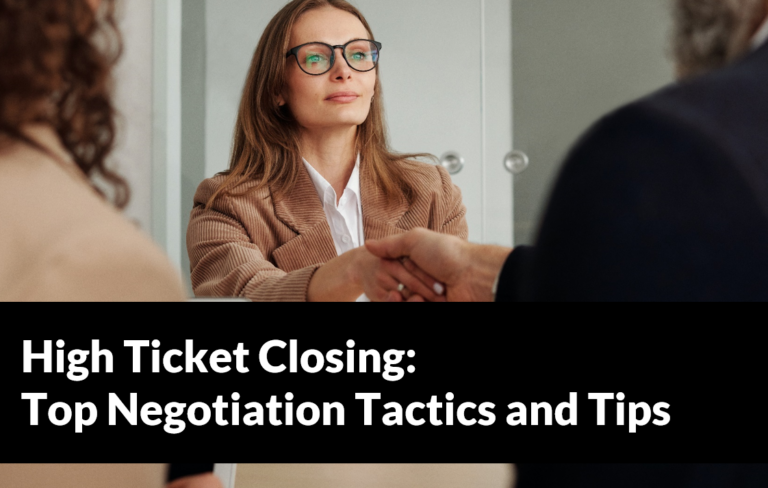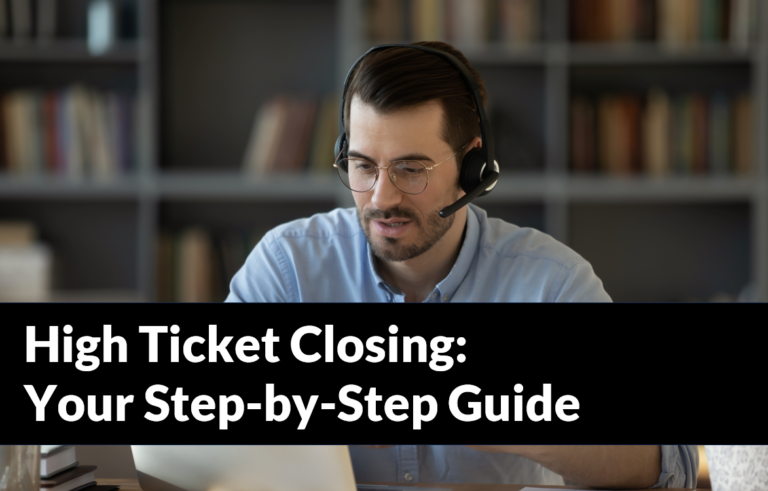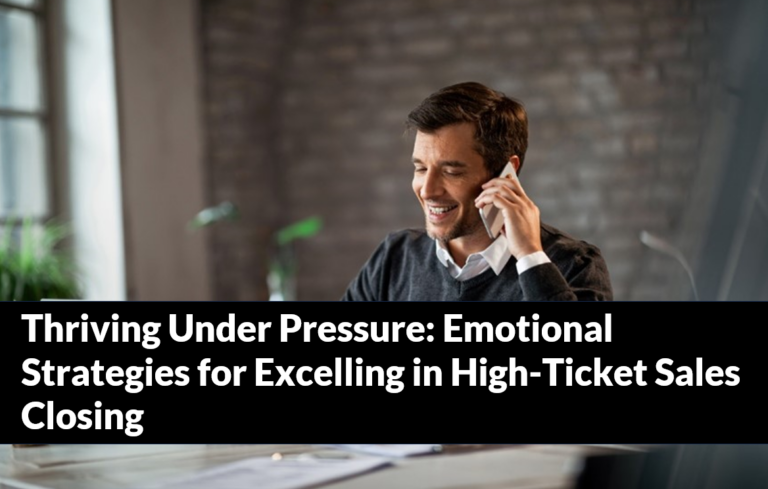Understanding High Ticket Closing: The Comprehensive Manual

Introduction to High Ticket Closing
Let’s start at the beginning. High ticket closing is a sales strategy, a crucial part of business that aims to close deals involving high-value items or services. These could range from luxury products, to real estate, to specialized business services and more. High ticket closing requires a unique approach, a strategic sales conversation and, importantly, mastery of the art of persuasion.
Why High Ticket Closing Matters
High ticket closing matters because it’s where the big money resides in sales. Selling high-ticket items can significantly impact a company’s revenue and profitability. Unlike low-ticket sales, high ticket closing often involves nurturing and building relationships with potential clients. This makes it a far more personal, and potentially rewarding, sales strategy.
Essential Skills for High Ticket Closers
High ticket closing isn’t for everyone. It requires an array of skills, including:
- Excellent communication skills: You’ve got to convey the value of the product or service clearly and effectively.
- Empathy and understanding: High ticket customers aren’t impulse buyers. They need to feel understood and appreciated.
- Patience: High ticket closing often takes longer than standard sales. It can involve several conversations or meetings, with patience being key to success.
- A knack for building relationships: High ticket sales revolve around relationships. Building trust with your potential customers can make or break a deal.
Key Steps in High Ticket Closing
Understanding the steps involved in high ticket closing can make the process less daunting. Here they are:
- Qualifying prospects: This involves identifying potential customers who are likely to purchase high-ticket items.
- Establishing rapport: Building a relationship with the prospect is crucial. It involves making them feel comfortable and valued.
- Presenting the offer: This is where you clearly articulate the value of your high-ticket product or service.
- Overcoming objections: Prospects will inevitably have reservations. Your job is to address them confidently and convincingly.
- Closing the sale: This is the final step where you seek the prospect’s agreement to purchase.
Strategies for Successful High Ticket Closing
Success in high ticket closing requires a strategic approach. Here are a few strategies to consider:
- Understand your customer’s needs: High ticket sales are rarely about the product alone. They’re about meeting the specific needs of your customer.
- Focus on value, not price: Instead of defending the price, demonstrate the value your product or service can bring to the customer.
- Be patient: High ticket sales often take time. Don’t rush, instead, nurture the prospect until they are ready to buy.
- Showcase your expertise and authority: By establishing yourself as an expert in your field, you create trust with your prospects.
Embodying the E-A-T Principle in High Ticket Closing
Expertise, authority, and trustworthiness (E-A-T) isn’t just a Google guideline, it’s a principle that high ticket closers should live by. Here’s how:
- Expertise: Be knowledgeable about your product or service and your industry as a whole.
- Authority: Establish your authority by showcasing your credentials, your experience, and the value you bring to the table.
- Trustworthiness: Build trust by being honest, reliable, and consistent.
Conclusion: High Ticket Closing in a Nutshell
High ticket closing isn’t just about selling expensive items. It’s a complex process that requires a mix of skills, strategies, and a deep understanding of your customer’s needs. By embodying the principles of expertise, authority, and trustworthiness, you can become a high ticket closer who not only closes deals but builds long-term relationships with customers.






